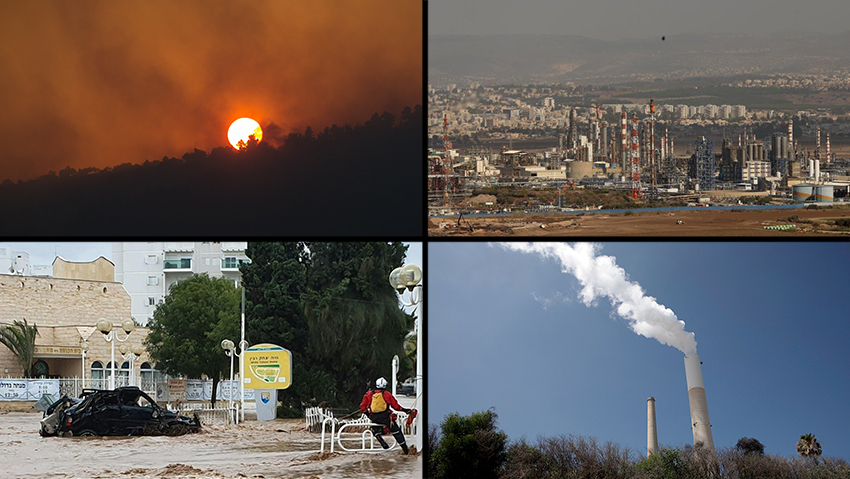Getting your Trinity Audio player ready...
Israel is unprepared for a climate crisis, a State Controller report published on Tuesday concludes, just days ahead of the UN Climate Change Conference in Glasgow set to begin next week.
Prime Minister Naftali Bennett, accompanied by the ministers of energy and the nvironment will travel to Scotland to attend the summit.
In an addendum to the report, State Controller Matanyahu Engelman said that Israel is one of the few countries that has not prepared and budgeted a national response to risks posed by climate change," The data presented in the report must be regarded as a bright red warning signal," he said.
"The State of Israel has yet to make the necessary perceptual shift. Only a minority of public entities exhibited actions for improving adaptation to climate change. Israel is one of the few countries in the world that does not act based on a national adaptation plan that is budgeted and approved, although it is in a “hot spot” (high-risk area), and thus even more exposed to climate change risks. Further, climate change is not part of the national threat map," the report said.
Among the risks as the result of climate change the report notes, are predicted as shortages of food and water in neighboring countries, hazards to the economy and financial institutions, national infrastructure, public health, ecosystems and biodiversity.
The 659-page report reviewed dozens of government ministries, state and public bodies and financial institutions and compared their actions to what other countries and international organizations have been doing to prepare for the crisis including risk analysis and scientific research.
It found the government did little to implement its own decisions to lower greenhouse emissions, after it ratified the 1996 UN framework Convention on Climate Change, leaving the country behind most others in the developed world and costing the economy NIS 217 billion in potential savings.
Israel's stated target of relying on 30% renewable energy by 2030, the report says, is the lowest among OECD members.
The report reviewed government decisions made as of 2015, including the imposition of a green tax, bolstering the use of public transportation, incentivizing the renewable energy industry and more, but found that most have not been put into action.
Despite deciding to establish a national forum with the budget, knowledge and authority to oversee government policies and implement action – no such budget was allotted, and no such authority was granted.
Therefore, the report notes, no research was conducted, and no methodologies were put in place.
Most of the public bodies approached by the State Comptroller in conducting the review, did not have any plan in place and had not budged any future action. Up to 89% of them had not even approached the Finance Ministry to request a budget earmarked for the purpose of combating climate change.
The Bennett government that came into power last June has already shifted its policies towards a more environmentally responsible agenda.
In this week's cabinet meeting, Bennett announced that climate change will be treated as a matter of national security.




